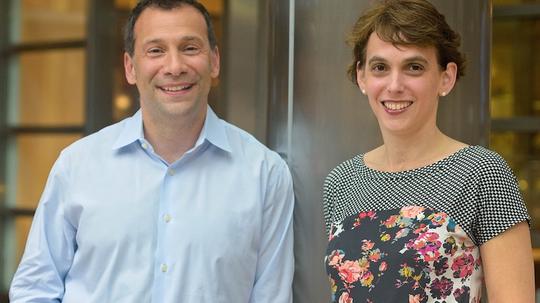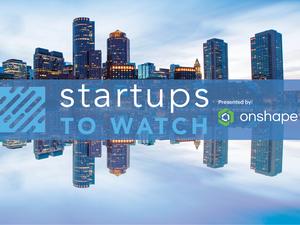
As you’ve probably heard, it’s never been easier (or more socially acceptable) to shun a normal career path in favor of founding a startup. That doesn’t mean it’s any easier to launch a good startup, though. And for people like myself there’s a good deal of work that needs to be done to distinguish the truly promising ones from the rest (you could also ask a VC how many “nos” they gave to startups this year). So as we head into 2016 I wanted to share my list of Boston startups I find most intriguing right now. Some of this is based on “signal”—traction, funding, hiring—while some picks are just based on my general sense that they are awesome. Clearly though, all could become a very big deal for the wider world, and many are already making their mark.
I should mention this post only features companies with fewer than 50 employees. I’ve got another post here with my picks for bigger Boston companies to watch.
Here are my top 16 Boston startups to watch in 2016:
ArtLifting
Here’s a feel-good one to start. ArtLifting is an online art marketplace that provides homeless, disabled and other disadvantaged people an outlet for selling their artwork. The startup has deals to sell artwork to the likes of Staples and Harvard, and is selling in eight cities around the U.S. in total. After bootstrapping at first, founders/siblings Liz and Spencer Powers just raised a $1.1 million seed from investors including Blake Mycoskie (TOMS Shoes) and Eric Ries (The Lean Startup). Read more: How ArtLifting's Focus on Big Co's Is Helping Homeless & Disabled Artists Find an Audience.
Change Collective
Disclosure up front: I’m a user (and big fan) of this company’s 10% Happier meditation app. A maker of mobile life-improvement courses, Change Collective debuted 10% Happier—based on the book of the same name—in August. Since then the app has gotten some strong adoption (4.5 stars on 150 reviews in the App Store) and they’re now "leaning in" and expanding it with additional meditation content, co-founder Ben Rubin tells me. The app is also “seeing adoption by folks who aren't in the ‘meditation crowd’—ad executives, therapists, soccer moms,” Rubin said. Read more: How Change Collective Is Working to Get Us Meditating.
Cintell
Just a couple months after raising its seed round, Cintell launched its marketing tech product with a wait list of hundreds of companies. Now 350 of those have become users, co-founder Katie Martell tells me. The company’s software aims to help automate the previously manual process of creating models of ideal customers, known as personas. The software integrates a lot of insights that normally you’d need to buy in the form of market research—and ultimately aims to allow companies to boost their sales and marketing efforts. Read more: Cintell Debuts Its Marketing Software With Big Demand
ClearSky Data
When ClearSky Data unveiled its new approach to data storage in late August, the startup’s founders drew an analogy with a legend of the Boston tech industry: Akamai Technologies. Akamai clearly agreed with the comparison, as the company took part in a $27 million Series B round for ClearSky last month. The startup has launched what it calls a global storage network, with the goal of dramatically simplifying the way companies manage their data while also cutting costs. ClearSky Data aims to transform data storage—“which has essentially not changed for decades,” co-founder/CEO Ellen Rubin said previously—into a service that is easier, cheaper and more on-demand. ClearSky has launched its service in the Boston, Philadelphia and Las Vegas regions, and plans to begin expanding to additional geographies soon, Rubin said. Read more: Akamai Backs $27M Round for ClearSky Data
Clypd
In its three years in existence, Clypd has begun to put an end to the traditional methods of buying and selling TV ads—long executed through a combination of spreadsheets, fax machines and steak dinners, says CEO Joshua Summers—and brought the process into the digital, big-data age. Clypd has grown to serve a customer base that includes some of the top names in cable, telecom, satellite, broadcast and TV programming. Discovery, ESPN, Cox Communications and Univision are the customers Clypd has been allowed to disclose, though there are a number of other major ones. The company has raised about $30 million in funding, including a $19.4 million Series B round in the spring. Read more: How PayPal Vets Are Shaking Up the TV Advertising World at Clypd
CrowdComfort
Here's a startup that may have solved the problem of keeping the temperature comfortable for everyone at work (at last!). CrowdComfort has developed a messaging app that lets employees convey when they’ve encountered a problem in the office to the right person—"it's too cold" is a popular one. Importantly, the startup has also come up with an indoor mapping approach that relays the precise location where the issue is taking place. Companies that are using CrowdComfort include GE and National Grid, and they raised a $1.4 million seed round last month. Read more: CrowdComfort Raises $1.4M to Keep You From Getting Cold in the Office
Driftt
When founders of a brand-new startup start throwing the word “anchor” around I get skeptical. Maybe not so much with this one from David Cancel and Elias Torres though. The pair was instrumental in helping turn HubSpot into a force in the tech industry and now they’re looking to do the same for their own startup, Driftt. “The goal is to create the next anchor company in Boston, or die trying. It’s going to be binary, guaranteed,” Cancel told me. (Woah.) The short version is that Driftt aims to dramatically improve the way companies engage with their customers after they’ve come aboard. Driftt raised $15 million in funding as its very first round, an unusually large amount for an initial funding, thanks in large part to the founders’ previous success. Read more: HubSpot Alums Are Ready to Share Their Huge Plans for Driftt
Freight Farms
Not many startups can claim to be working toward changing our entire notion of what agriculture looks like. Besides Freight Farms, which has developed a shipping container that grows vegetables using hydroponics, and connects to the cloud for remote monitoring and control. They've deployed several dozen of their freight container units ("leafy green machines") to date and they have lots more orders to fill. "Customers... are buying farms as fast as we can ship them at this point building for an explosive period of growth that has begun," co-founder Brad McNamara told us recently. They raised $3.7 million a year ago led by Spark Capital. Read more: 5 Boston Tech Startups Changing the Food Industry
Speaking of changing the face of agriculture, this team out of MIT has its own spin on the idea. The startup has developed the Grove Ecosystem—about the size of a bookshelf—which uses LED lights and aquaponics (fish) to grow food in any room of the house. The company's Kickstarter campaign ends Thursday and has raised more than $360,000 so far, crushing the $100,000 goal. The product is expected to start shipping in March, and it'll start retailing in 2016. Grove has raised $4 million in funding from investors including Upfront Ventures. Read more: Grove's Indoor Veggie Growing Systems Are Now on Kickstarter
Help Scout
While keeping a low profile after graduating from Techstars Boston in 2011, Help Scout managed to build a profitable business of providing Web-based help desks to thousands of paying customers—on just $800,000 in funding. Customers have included GrubHub, CrossFit and AngelList. Then, this past March, Help Scout raised a $6 million Series A led by prominent venture firm Foundry Group. I'm told they've now grown to a staff of 38 with plans to grow to more than 50 next year. Great story here of a company taking a very different path to scaling and VC from the norm. Read more: A 'Bootstrapper at Heart,' Help Scout Raises $6M Led by Foundry Group
Jibo
Will Jibo, touted as the world's first "social robot for the home," become a household name in 2016? New investor Fenfox Venture Capital certainly thinks so, saying last month that "this intelligent humanoid is expected to become a central part of every home and lead the emerging social robotics space." The robot is expected to have features including high-resolution cameras that can recognize faces, capture photos and facilitate video calls. Jibo raised a $25.3 million Series A round led by RRE Ventures in January, and the company is now working to fulfill its $2.3 million Indiegogo campaign from last year. The first units were originally slated to ship late 2015 but have since been pushed back to next year.
Litmus
This company doesn't quite fit most people's definition of a "startup," seeing as how they're now 10 years old. For their first decade though, the email testing specialist was bootstrapped—and never aspired to grow to have a big staff. But as of October, Litmus has moved into a different phase. The company announced a $49 million funding round to bring new products to market “quicker and on a much bigger scale,” co-founder and CEO Paul Farnell told me. As with Help Scout, this is another terrific example of a how to grow a strong tech business, bit by bit, before bringing in major investment for expansion. “We set this goal years ago that we wanted every marketing email that went out to have touched Litmus in some way,” said Farnell— perhaps run through Litmus' testing software or its checklist product, or tracked with the company’s analytics. “In order to realize that, we need to think a lot bigger as a company.” Read more: Why Litmus Decided to Stop Bootstrapping
Lola
First and foremost, Lola has my attention (I'm far from alone on this) because its founders are Paul English, co-founder and former CTO of Kayak, and Bill O'Donnell, former chief architect at Kayak. But they've also got an idea that's pretty sensational in this day and age: Lola intends to connect travelers with live travel agents, using a travel-booking smartphone app. The app just went into beta and is expected to officially launch in the first quarter of 2016—and within the next year, Lola plans to hire about 100 travel agents as employees. English says that Lola is seeking to reach about 250 employees in total by the end of next year, up from the current 31. Read more: Paul English's Travel Startup Plans to Hire 200 Employees By the End of 2016
Outlearn
Two veterans of the Boston tech scene have teamed up to launch Outlearn, which is looking to reinvent the way developers further their training and skills. It's not a courses library, but instead aims to better organize the learning content that’s out there on the Web while blending it with internal, proprietary training. And the focus is on working developers, not coding newbies. “All the learn-to-code stuff is great, but what unfortunately tends to happen is that when a developer gets out of 'learn to code' and into the professional workplace, suddenly they’re left to their own devices,” said co-founder Will Koffel, who was part of the founding engineering team at Akamai. Outlearn's other co-founder is former Brightcove CMO Jeff Whatcott, and the startup raised a $2 million seed round from General Catalyst Partners former longtime Akamai CEO Paul Sagan in October. Read more: Outlearn Gets $2M for New Developer Training Site
Transatomic Power
Founded by MIT nuclear science graduates, Transatomic Power is seeking to turn nuclear power into something most everyone will feel good about. The startup has designed a nuclear reactor that would aim to produce electricity using existing nuclear waste, helping rid us of one of the major issues associated with conventional nuclear plants. The Transatomic reactor design would also not be prone to melting down, according to the company. And of course, the reactor would have the same environmental benefit of being carbon-free as existing nuclear power designs. Transatomic Power co-founder and CEO Leslie Dewan said the company is aiming to break ground on a demonstration facility within five years and have it operational a few years after that. “For the nuclear industry, it’s very fast-paced,” she said. This past February the startup raised $2.5 million in new funding from investors including Peter Thiel’s Founders Fund. Read more: MIT Startup Gets $2.5M to Develop the Nuclear Reactor We've Been Waiting For
VENTUREAPP
Another disclosure: Three of the founders of this startup previously founded the company I work for now. Does that mean they got an automatic ticket onto this list? Nope, they earned it: VENTUREAPP is simply one of the most buzzed-about startups in Boston right now—partly, I suppose, because their initial customers are startups. They offer an on-demand business concierge service for startups (and eventually, larger companies), which connects users with various products and services they need to do business. What also stands out however is that their recent $2 million funding round includes a who's who of Boston tech—among the backers are Dharmesh Shah, Diane Hessan, Jason Robins, Mike Baker, Sarah Hodges, Fred Shilmover, Brent Grinna and Phil Beauregard, along with firms Accomplice and Boston Seed. VENTUREAPP's founders are Chase Garbarino, Kevin McCarthy and Gregory Gomer (formerly the founders of BostInno parent Streetwise Media), along with Dailybreak founders Boris Revsin and Jared Stenquist. Read more: VentureApp's Long Game Isn't Startups: It's Small Business
Photos of Paul English and Leslie Dewan by BostInno. Other photos courtesy of the companies.








